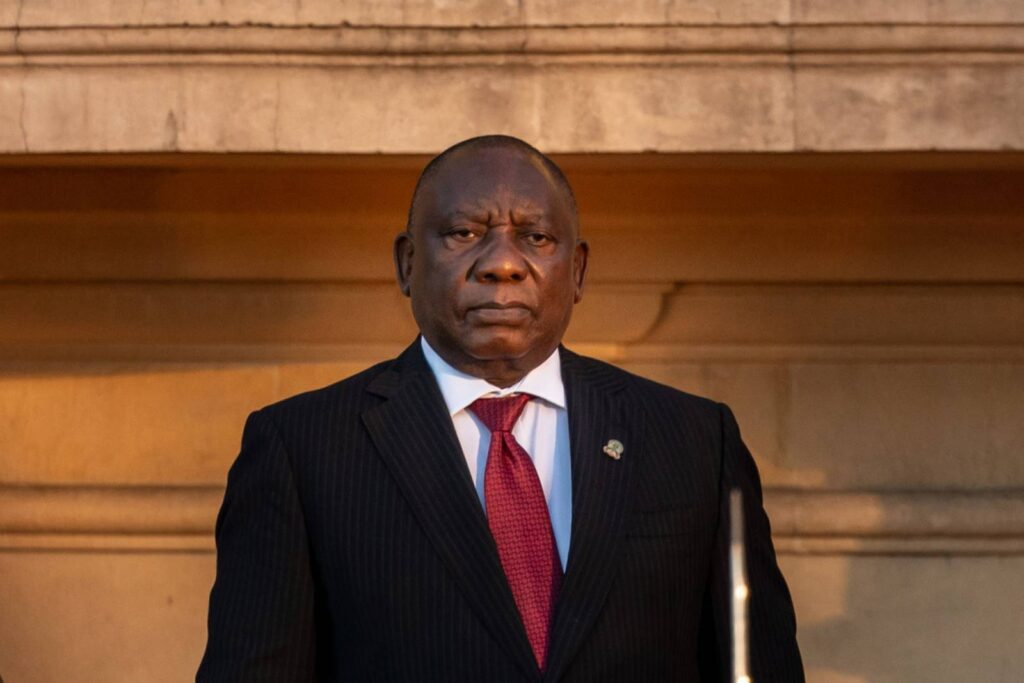
President Cyril Ramaphosa. Photo: Dwayne Senior/Getty Images
PThe Presidential Climate Commission (PCC) said resident President Cyril Ramaphosa’s signing of the Climate Change Bill into law on Tuesday marks the beginning of a new era in coordinated climate action in South Africa.
The Act establishes a legal obligation for a national climate change response to align policies and actions, including mitigation and adaptation, “which also constitutes our country's legitimate contribution to the global climate change response,” the committee said.
“While some state government departments and other government agencies explicitly outline transition outcomes in their annual performance plans, the Act clearly directs all government agencies to review and, as necessary, revise, amend, adjust or harmonize their policies, measures, programs and decisions to ensure that they take into account the risks of climate change impacts and associated vulnerabilities,” the department said.
The new law is the country's first comprehensive piece of legislation designed to promote the development of effective climate change responses.
The act incorporates the country's Paris Agreement targets and nationally determined contributions into domestic law.
“Successful climate action will undoubtedly require the alignment of key socio-economic, environmental and governance policies,” said PCC Secretary-General Crispian Olver.
“We are entering a new phase of climate change action, and we believe the Climate Change Act will promote institutional coherence across federal, state and local governments and strengthen the governance of climate change adaptation.”
He said the law not only clearly defines the functions of the PCC, but also outlines the role state and local governments will play in mitigation efforts “to ensure the realization of the vision for effective climate response and a just transition to a climate-resilient, low-carbon economy and society.”
The presidency said the legislation would allow for the alignment of policies affecting the country's response to climate change and “ensure that South Africa's transition to a low-carbon, climate-resilient economy and society is not constrained by policy inconsistencies”.
The law aims to strengthen the country's capacity and capability to reduce greenhouse gas emissions and build climate resilience in the long term, while reducing the risk of unemployment and promoting new job opportunities in the green economy.
James Lehrer, senior climate manager at World Wildlife Fund South Africa, welcomed the passing of the Act after nearly a decade of discussion and seven years since the first draft bill was published.
“During this same period, South Africa has emitted more than four billion tonnes of carbon dioxide and evidence is becoming increasingly clear that climate change is impacting people's lives and livelihoods. The importance of this Framework Act to guide our response to this crisis cannot be overstated,” he said.
“While much hard work remains, the Climate Change Act provides a vital legal framework for the country and all its people to move away from an otherwise confirmed harmful and inequitable future and realise our vision of sustainable development.”
Brandon Abdinour, a climate advocacy lawyer at the Environmental Rights Centre, said his organisation welcomed the “clear formalisation” of a comprehensive climate change response into national law.
“In addition to the statutory controls on climate change adaptation and mitigation, the Climate Change Act imposes obligations on state agencies affected by climate change to harmonize their laws, policies, programmes and decisions with the principles and objectives of the Act.”
He said that from now on, carbon budgets will be allocated to major emitting countries, giving climate change mitigation, i.e. the reduction of greenhouse gas emissions, a legal basis.
“The law could have been stronger in criminalizing excess greenhouse gas emissions, but at least there are tools now in place to help monitor emissions and mitigation plans that will essentially start to force big emitting companies to commit to decarbonization,” Abdinour said.
Abdinour said policymakers and state decision-makers have an obligation to address climate adaptation needs based on the best currently available science, which will accelerate protections for vulnerable and at-risk populations.
The Presidency said the Act outlines the functions of the PCC, which includes providing advice on the country's climate change response so that an effective climate change response and the vision of a long-term just transition to a climate-resilient, low-carbon economy and society are realised.
The PCC said it would strengthen its relationships with government, particularly the Ministry of Forestry, Fisheries and Environment and the Ministry of Finance, to implement the Act and ensure a smooth transition to the public sector.
Abdinour added that formalising the PCC as a statutory body will give the forum the legal standing it needs. “In addition to commissioning and producing science-based research reports, the forum is hosting difficult negotiations between social partners – business, labour, civil society and governments – on how to deliver a just transition that leaves no one behind, and how to decarbonise societies and economies in a fair and equitable way.”

